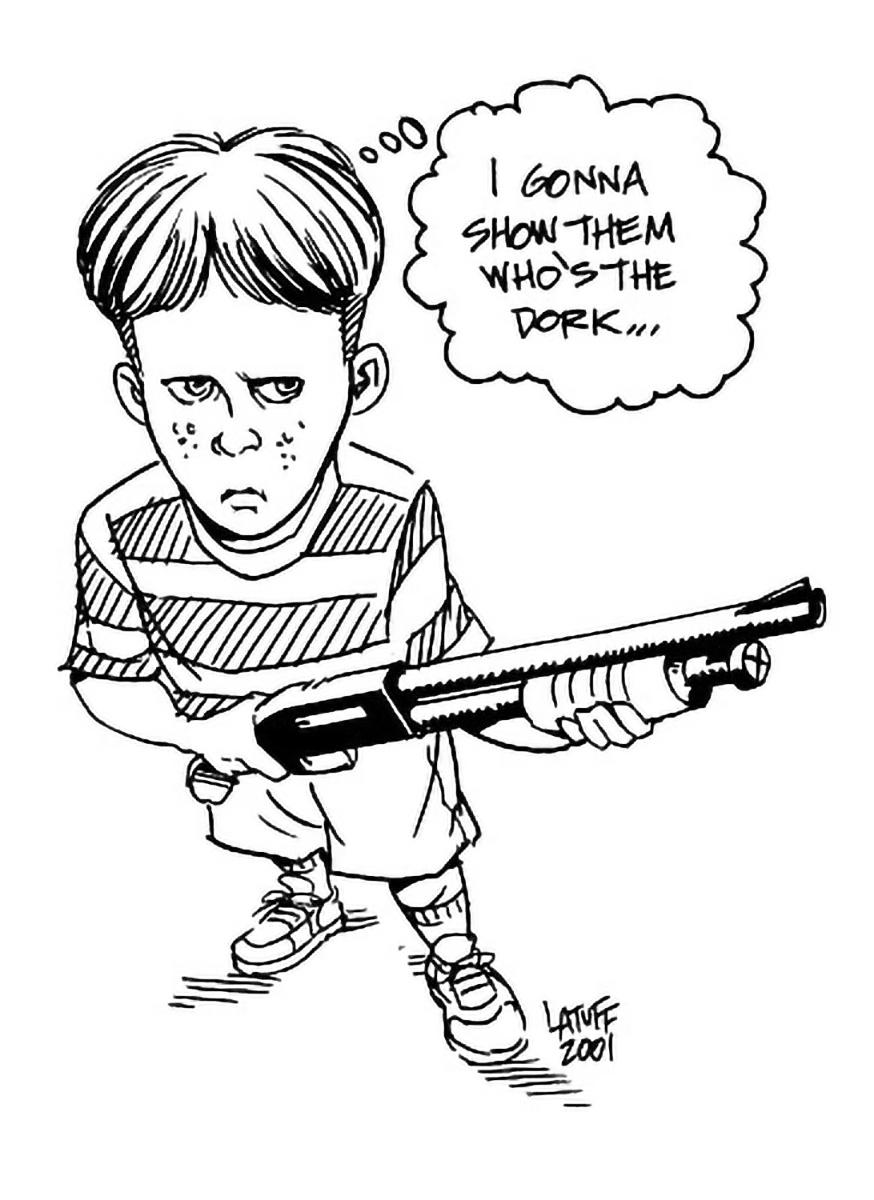Tasks: School Shootings
Before you start working with the tasks, you should know a few things about gun laws in the United States. Read the information in the expandable box and use this as background information.
How can school shootings in the United States be prevented?
In the expandable box, you will find a list of actions that have been suggested or tried out to help prevent school shootings.

Individual work: Using the information in the expandable box, make a prioritised list of what you believe would be the most effective ways to prevent school shootings.
Group discussion: Compare your answers with the rest of the group and argue for your point of view. Are you able to agree on a common list? Do you have ideas for measures that are not on the list?
Class discussion: Share your answers with the rest of the class.
Work as a class and divide the English-speaking countries between you.
Compare the United States to other English-speaking countries. How does the United States stand out with regards to ...
... the number of weapons in private hands.
... gun-related violence (homicide and suicide numbers).
... the number of school shootings and mass shootings.
... gun legislation.
Handguns and weapons are an ingrained part of the American society, and this is also reflected in the language.
Do the activity below: match the expressions to their meaning.
Write a short story of maximum 550 words where you use as many of these expressions as you can. Use your imagination.
When you are finished, share your short story in a group. Give each other feedback: point out two things that were good about the story, and one thing that could be improved.
Pick one of the topics from the list. You can either write a longer text or make a presentation for the class.
The Second Amendment is regarded as one of the most important individual freedoms that have been granted to the American people. Explain what the Second Amendment says and why this amendment is so controversial.
What is the NRA, and how does this organisation influence American politics? Why is the organisation so controversial?
There is a great divide in the American population when it comes to the question of gun legislation. Find statistics and information that present this divide and explain the pattern you find.
The United States is a federal country. Explain what federalism is and how this complicates gun policies in the country. Give examples of how gun laws can differ from state to state.
After the shooting in Parkland, Florida in February 2018, the grassroots movement #NeverAgain was established by students at Stoneman Douglas High School. Explain how this movement came about, what they did, and why it was successful.
Compared to the United States, Canada has strict gun legislation. Find out about gun legislation in Canada and discuss whether gun control is the reason why Canada has fewer mass shootings than the United States.
By following this link, you can watch a short animation called The Opposite Game on the TED webpage. Watch the film, then answer the questions below.
Link to the film The Opposites Game on the TED webpage
What is the plot of the film?
What is the theme of the film?
What is the message of the film?
The film ends with the sentence " Your death will sit through many empty poems". What do you think this means?
I Don't like Mondays by The Boomtown Rats, Brand New Kicks by Foster the People, and Jeremy by Pearl Jam are three songs that have school shootings as a theme.
Choose one of the songs. Find the song lyrics by making an online search, and listen to the song, for example on YouTube. Also find out about the background for the song: why was it written?
Write a text where you look at language features and literary devices used in the lyrics, and explain how they help convey the theme and message of the song. Also discuss whether the music helps convey the mood, theme, and message of the song.
If you know of another song that has school shootings as a theme, it is OK to analyse that instead.
Related content
This resource explores how school shootings affect the American society.